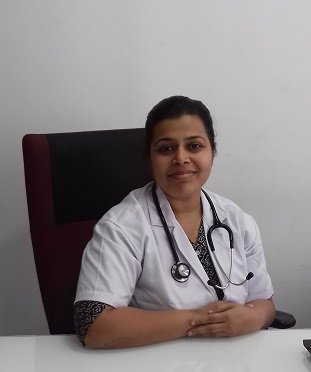Cancer- Growing incidences & Timely intervention
July 19, 2018 | Thursday | Features | By Dr. Gowri Kulkarni
The treatment for cancer entirely depends on the type and stage of the disease along with the age and health status of the patient.
According to The Indian Council of Medical Research (ICMR), India will see 17.3 lakh new cases of cancer — with breast, cervix and lung cancer being the most prominent — by 2020.Cancer has undeniably become a massive problem globally and across India as well. The life-threatening disease occurs when abnormal cells grow in an unrestrained manner, often forming a tumour that can be either benign or malignant. Cancer cases are common in both men and women. The disease can occur in any part of the body. In women, breast cancer, ovarian cancer and cervical cancer are common while men are at high risk of prostate cancer. Lung cancer and colorectal cancer affect both men and women in high numbers.
There is a wide range of causes for cancer. Some of the most common reasons being:
- Lack of physical activity and improper diet habits
- Viruses and other infections
- Over-consumption of alcohol and tobacco use
- Pro-longed exposure to Sun and other types of radiation
- Inheritance of faulty cancer genes
If people experience symptoms such as constant fatigue, unexplained weight loss, changes in appetite and bowel movements, a new mole or a change in an existing mole, a sore that does not heal, urinary tract problems, change in size or shape of the breast or nipple, unusual bleeding or discharge, a thickening or lump on or under the skin and a change in skin texture for a couple of weeks, it is important to consult a physician so that the problem is diagnosed and treated as early as possible.
The treatment for cancer entirely depends on the type and stage of the disease along with the age and health status of the patient. Patients often undergo a combination of treatments, depending on the intensity of the disease. The three main treatments are:
Surgery: This is one of the oldest forms of treatment, where the tumour is removed along with lymph nodes around it, as they are the portals through which cancer cells spread to other parts of the body.
Chemotherapy: In chemotherapy, drugs are used to slow down or stop the growth of rapidly-dividing cancer cells in the body. Chemotherapy is used to treat cancer that has spread or metastasized and the medicines are effective for the entire body.
Radiation therapy: Radiation treatment destroys the molecules that make up the cancer cells by utilizing high-energy gamma-rays. Radiotherapy can be used as a standalone treatment to shrink a tumour or destroy cancer cells or as a combination with other cancer treatments.
Some of the other treatments include immunotherapy, gene therapy and hormone therapy. While these are relatively new and expensive treatments, they are effective and can be included in the combination of therapies for the cure.
Both men and women should get timely check-ups done to significantly reduce their risks of cancer. A PET scan (an imaging test) is done to find out whether a tissue is an active cancer or not. Women, post the age of 21 should opt for a Pap smear test and a screening procedure for cervical cancer. The test must be taken once every 3 years. Women above the age of 40 should get a sono-mammogram done every year to prevent the risk of breast cancer. Women below the age of 40 are at a higher risk of developing the disease if they have close relatives who've been diagnosed with breast cancer. They should get a clinical breast examination done or go to a doctor for a test at least once a year. With respect to colon cancer, about 5 to 10% of cases are caused by an inherited genetic mutation. Undergoing colonoscopy, starting from the age of 40 is a must if there is a family member who had colon cancer. The 2 common tests to be taken for ovarian cancer are the trans-vaginal ultrasound (TVUS) and the CA-125 blood test.
As prostate cancer is highly common in elderly men, it is advisable that all men post the age of 55 should undergo regular scans or get a Prostate-Specific Antigen (PSA) test done after the age of 60. Apart from these, regular health check-ups are necessary for both men and women after they cross 40. Always remember, the incidence of cancer is much higher as you grow older.
As cancer survivors are at a high risk of relapse, they need to take extreme care to enjoy their years ahead. A balanced diet that includes a lot of fruits, vegetables and whole grains are necessary to maintain a healthy weight and body. They must also stay in constant touch with their doctor and conduct regular and timely check-ups to enjoy cancer-free years ahead.
These days, with advances in research and therapies, cancer is diagnosed frequently and people are open to discussing about the disease. In an attempt to prevent the development of cancer of a particular organ or gland, a lot of people opt for prophylactic surgery for cancer prevention. The goal of prophylactic surgery is to remove additional tissue or organs from the body which, although may currently show no signs of cancer, carry a high risk of developing it in the future.
Dr. Gowri Kulkarni, Heads of Operations, DocsApp









